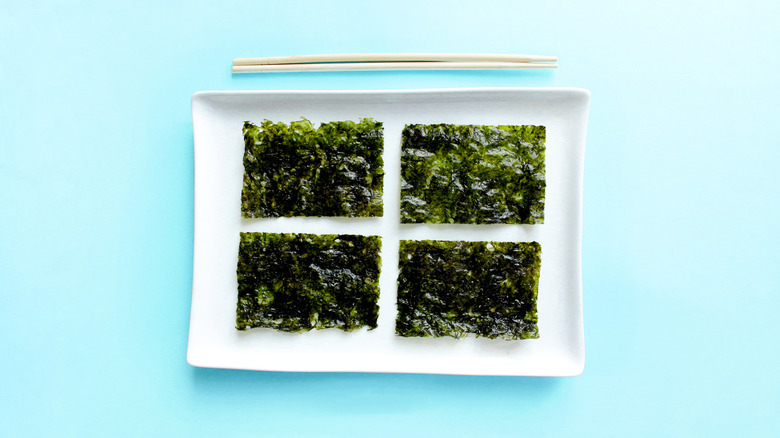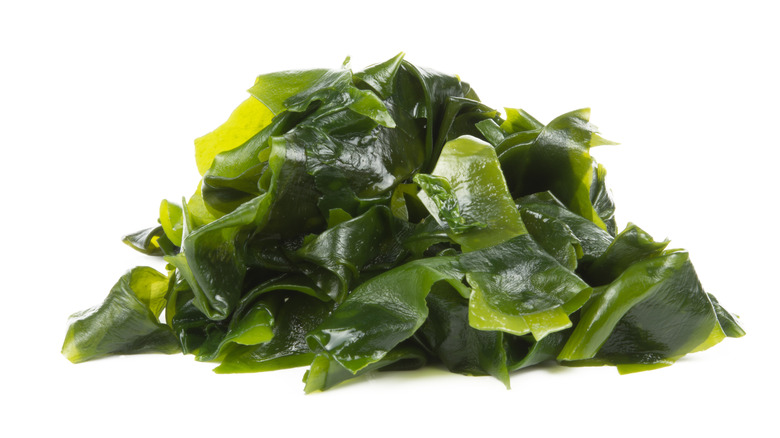How Snacking On Seaweed Helps Marine Ecosystems
Aquafarming is usually a labor-intensive process that usually isn't the best for the environment, according to NPR. Whether that's through breeding fish or algaculture, marine farming reportedly dispels large amounts of toxic waste into natural ecosystems, potentially harming the surrounding wildlife, per the People for the Ethical Treatment of Animals (PETA).
Yet, the snack company 12 Tides has found a way to make the process of harvesting seaweed beneficial to the habitats it is grown in. By using a technique called ocean regenerative farming, seaweed can be used to improve the quality of the water surrounding it, explained co-founder Pat Schnettler to Thrillist. According to the company's website, seaweed absorbs the carbon in oceans that can hurt other marine life. The snack brand gets organic seaweed from regenerative ocean farmers and bakes it into delicious, puffed kelp chips that are available in three different flavors — sea salt, chili, and everything.
How is eating seaweed sustainable?
Consuming seaweed can also be a great way to make a positive impact on the environment if eaten in place of common meat items. Akua is another company that makes its products from ocean-farmed kelp and seeks to create products that even the most devoted meat lovers would like, such as kelp jerky, kelp burgers, and even kelp pasta. Akua also uses ocean regenerative farming and sources its kelp from small seaweed farmers in Maine, according to Thrillist.
Swapping to a plant-based diet can lower your carbon footprint by 73%, according to a University of Oxford study quoted by the Independent, and finding alternatives you love is a great way to make that process easier. You don't have to completely cut out meat to call yourself "more eco-conscious," but by just making small changes and trying out other plant-based options, you can make a difference as a bio-individual. In the words of Akua, who doesn't want to eat like a mermaid?

